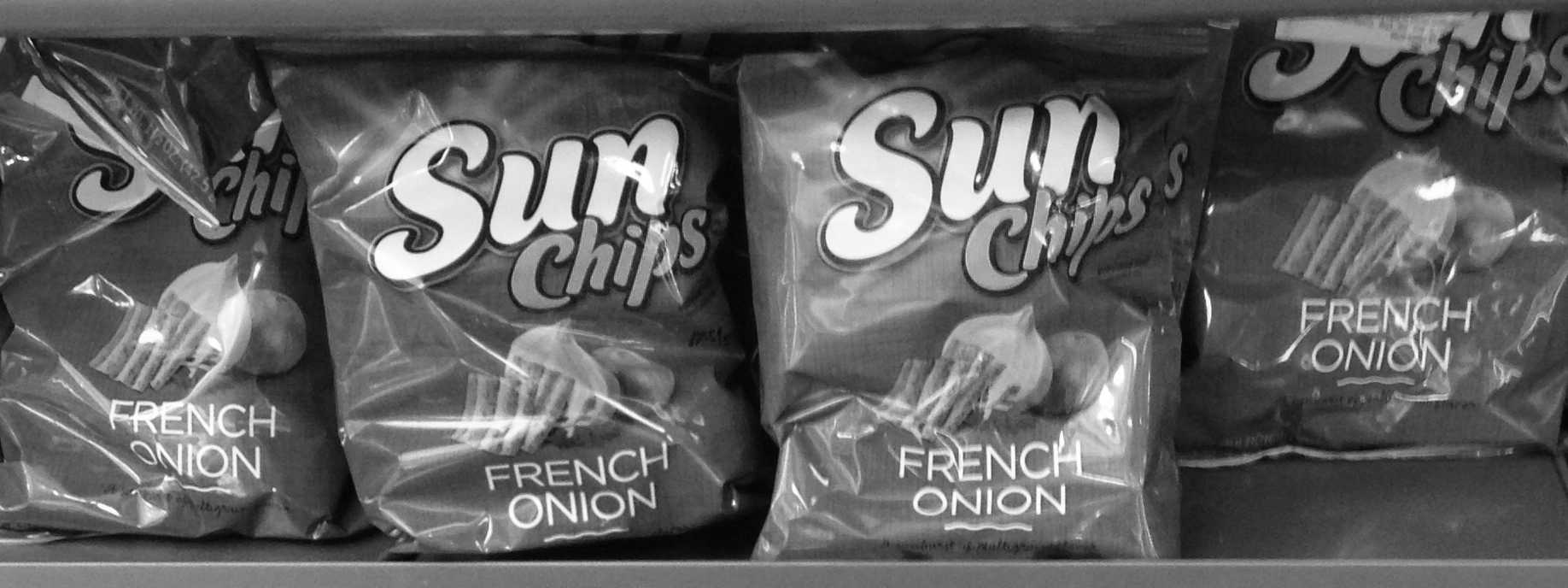Between classes, students often rely on campus convenience stores to satisfy their appetites.
Cal State Long Beach alumna Olivia Ayala, who has worked at the Outpost convenience store for two years, said she has noticed that foods crossing the register most frequently include those like Sun Chips and VitaminWater.
While these products are healthier than others, they still contain many ingredients with names too scientific to dissect while munching in between classes. Out of curiosity, the Daily 49er decided to break down some of the labels and examine the mystery ingredients.
Artificial Sweeteners
They come in many names and packages, but they can be found in anything labeled “diet” or “sugar free.”
Artificial sweeteners, however, aren’t as bad as they’re made out to be. They have always been an effective sugar replacement for diabetics, and as long as people don’t pair them with added carbohydrates or sodium, they can help with weight loss.
Using an excessive amount of sugar substitutes for weight loss is not a good idea though. According to PubMed.gov, the brain releases the same neurotransmitters that release when a person consumes pure sugar, resulting in continued cravings for the same sweet foods they’re trying to avoid.
Many people probably remember when their mothers would force them to chew or swallow their daily vitamins instead of simply drink them.
Today, VitaminWater comes in a cornucopia of colors and flavors with clever phrases on the side and offers an assortment of vitamins such as Vitamin C and multi-B vitamins.
The clever wording can also be found in the ingredient list. Erythritol and crystalline fructose, which are fancy names for sugar, are among the mystery list of ingredients. According to NIH, these sweeteners are anywhere from 30 to 80,000 times sweeter than table sugar, without the calories.
Aspartame, for one, has been a subject of debate over the years. In the long run, health experts say that it could cause a number of maladies, including cancer. According to PubMed, the additive also breaks down to formaldehyde, a common preservative, and methanol, a clear, flammable alcohol.
However, glaceau did come out with a VitaminWater Zero that uses a natural herbal sweetener called Stevia.
Maltodextrin
You’ll find this mostly tasteless and slightly sweet white powder in many foods you consume, such as candy, chips and even pills.
It is an easily digestible powder used as a thickener or filler, and according to the U.S. Food and Drug Administration, it is derived from cornstarch, barley or wheat. It is intended to be as pure as possible so that it can be used in a wide variety of products. It is also the main component in artificial sweeteners.
Partially hydrogenated oils
Transfats come in many disguises and are in more products than you might think. Partially hydrogenated oils are a form of transfats, and they are found in almost all processed foods, especially those on which students binge on from time to time.
Hydrogen is added to vegetable oils such as soybean oil and is used as a preservative to extend the shelf life of processed foods, such as Sun Chips, according to the Harvard School of Public Health.
According to the HSPH, before hydrogen was used, the only transfats people consumed were from animals, in meat and dairy. Today this ingredient is everywhere and is one of the most deadly for a diet.
Monosodium Glutamate (MSG)
The ever-popular Flaming Hot Cheetos, both regular and supposedly healthier baked versions, contain disodium guanylate, disodium inosinate and everyone’s favorite: monosodium glutamate, otherwise known as MSG. The combinations of these three ingredients are not only hard to pronounce but are also often used as a trio in processed snacks.
Disodium guanylate and disodium inosinate are flavor-enhancing additives, commonly added to packaged noodles, snack foods, chips and fast food. According to a 2007 study conducted by Britain’s Food Standards Agency, findings showed that food additives “exacerbate hyperactive behaviors,” such as inattention, impulsivity and over-activity — not exactly brain food for students.
The use of MSG has remained controversial for years. The FDA has declared MSG a generally safe ingredient, however, according the Mayo Clinic website, effects caused by MSG include things like headache, nausea, and its long-term effects contribute to hypertension and obesity. Though baked chips offer an alternative to the traditionally fried snack, the ingredients remain relatively the same.




